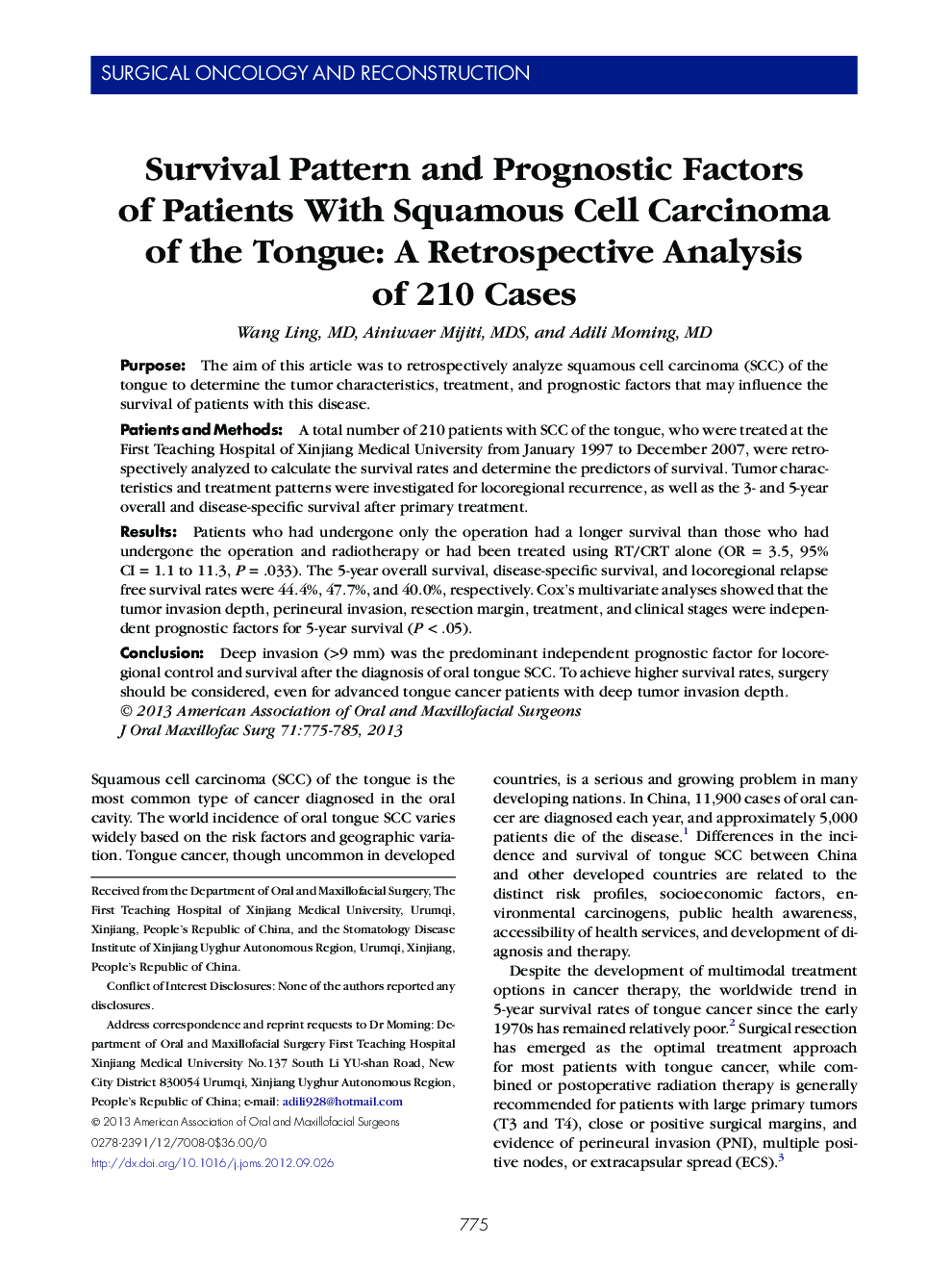| Article ID | Journal | Published Year | Pages | File Type |
|---|---|---|---|---|
| 3156582 | Journal of Oral and Maxillofacial Surgery | 2013 | 11 Pages |
PurposeThe aim of this article was to retrospectively analyze squamous cell carcinoma (SCC) of the tongue to determine the tumor characteristics, treatment, and prognostic factors that may influence the survival of patients with this disease.Patients and MethodsA total number of 210 patients with SCC of the tongue, who were treated at the First Teaching Hospital of Xinjiang Medical University from January 1997 to December 2007, were retrospectively analyzed to calculate the survival rates and determine the predictors of survival. Tumor characteristics and treatment patterns were investigated for locoregional recurrence, as well as the 3- and 5-year overall and disease-specific survival after primary treatment.ResultsPatients who had undergone only the operation had a longer survival than those who had undergone the operation and radiotherapy or had been treated using RT/CRT alone (OR = 3.5, 95% CI = 1.1 to 11.3, P = .033). The 5-year overall survival, disease-specific survival, and locoregional relapse free survival rates were 44.4%, 47.7%, and 40.0%, respectively. Cox's multivariate analyses showed that the tumor invasion depth, perineural invasion, resection margin, treatment, and clinical stages were independent prognostic factors for 5-year survival (P < .05).ConclusionDeep invasion (>9 mm) was the predominant independent prognostic factor for locoregional control and survival after the diagnosis of oral tongue SCC. To achieve higher survival rates, surgery should be considered, even for advanced tongue cancer patients with deep tumor invasion depth.
